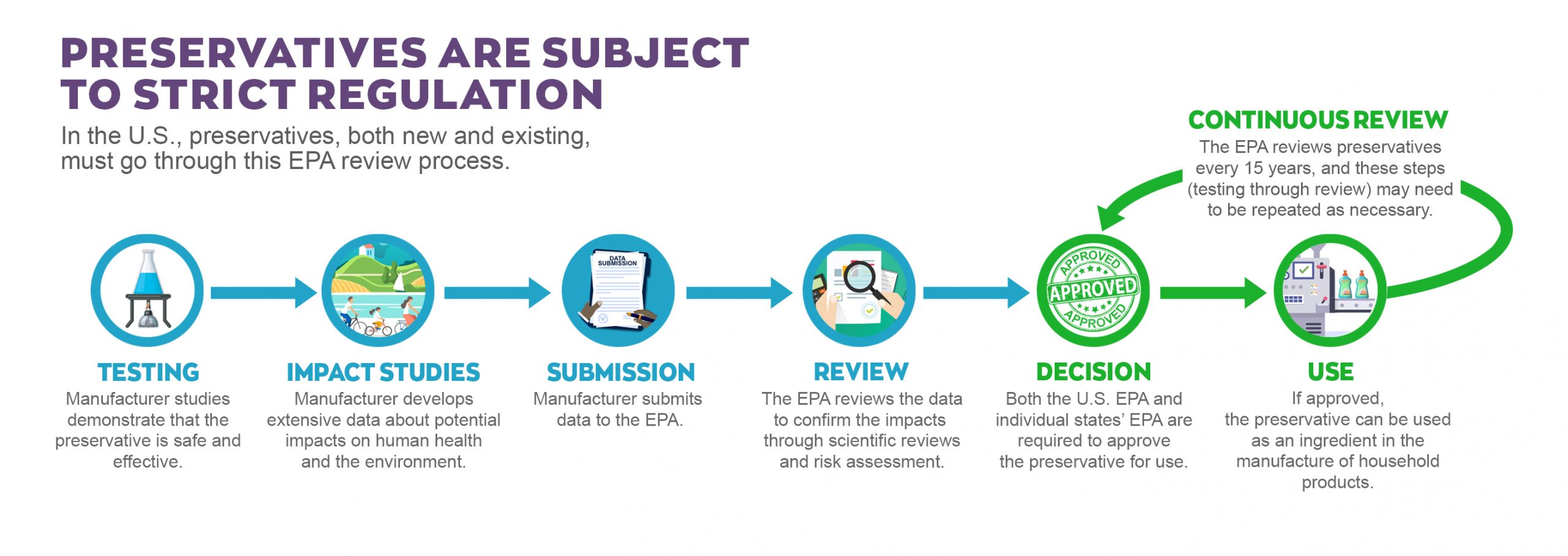
Before preservatives can be used in products, they are rigorously tested, then reviewed and approved by the Environmental Protection Agency (EPA) to ensure they don’t have unintended consequences on humans or the environment.

The Environmental Protection Agency (EPA) evaluates the safety of preservatives before they can be used in a cleaning product. This ensures that preservatives meet federal safety standards to protect human health and the environment.
The risk assessment uses data to identify what effects a preservative could have on humans or the environment at the amount used in cleaning products. The level of risk is determined by evaluating the relationship between hazard and exposure. Hazard refers to the potential negative impact of the substance. In contrast, exposure considers how it’s used, how much, how often, and for how long you use the preserved cleaning product. Both hazard and exposure are considered when formulating cleaning products, which is why it’s so important to use the product as its intended and according to the directions on the label.
Once a preservative has been evaluated and approved by the EPA, it can be used in cleaning products in the U.S. The EPA also routinely re-reviews the science behind preservative chemistries as part of its comprehensive Registration Review program to ensure these ingredients continue to meet safety standards.
In addition to federal requirements, preservatives must also be registered to meet state standards. For example, in California, the state conducts its own extensive assessment (independent of the EPA) prior to approving a preservative for use in a product. Additionally, products that are sold internationally are required to meet regulatory standards in those regions.
Companies responsibly formulate products that comply with both federal and state regulations, which are in place to protect consumers and the environment, and consumers can be confident that any preservative registered with the EPA has been thoroughly tested for safety.



